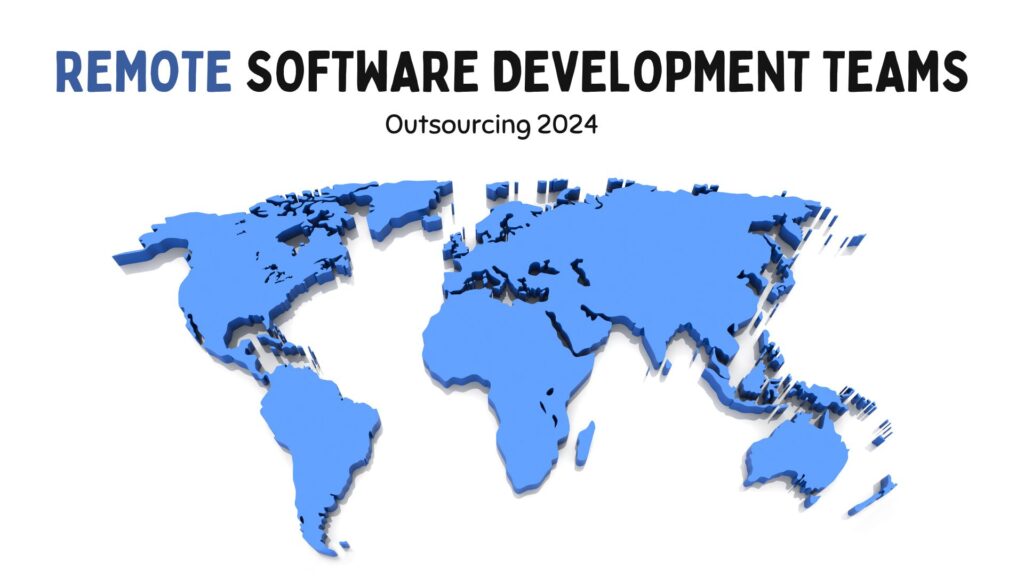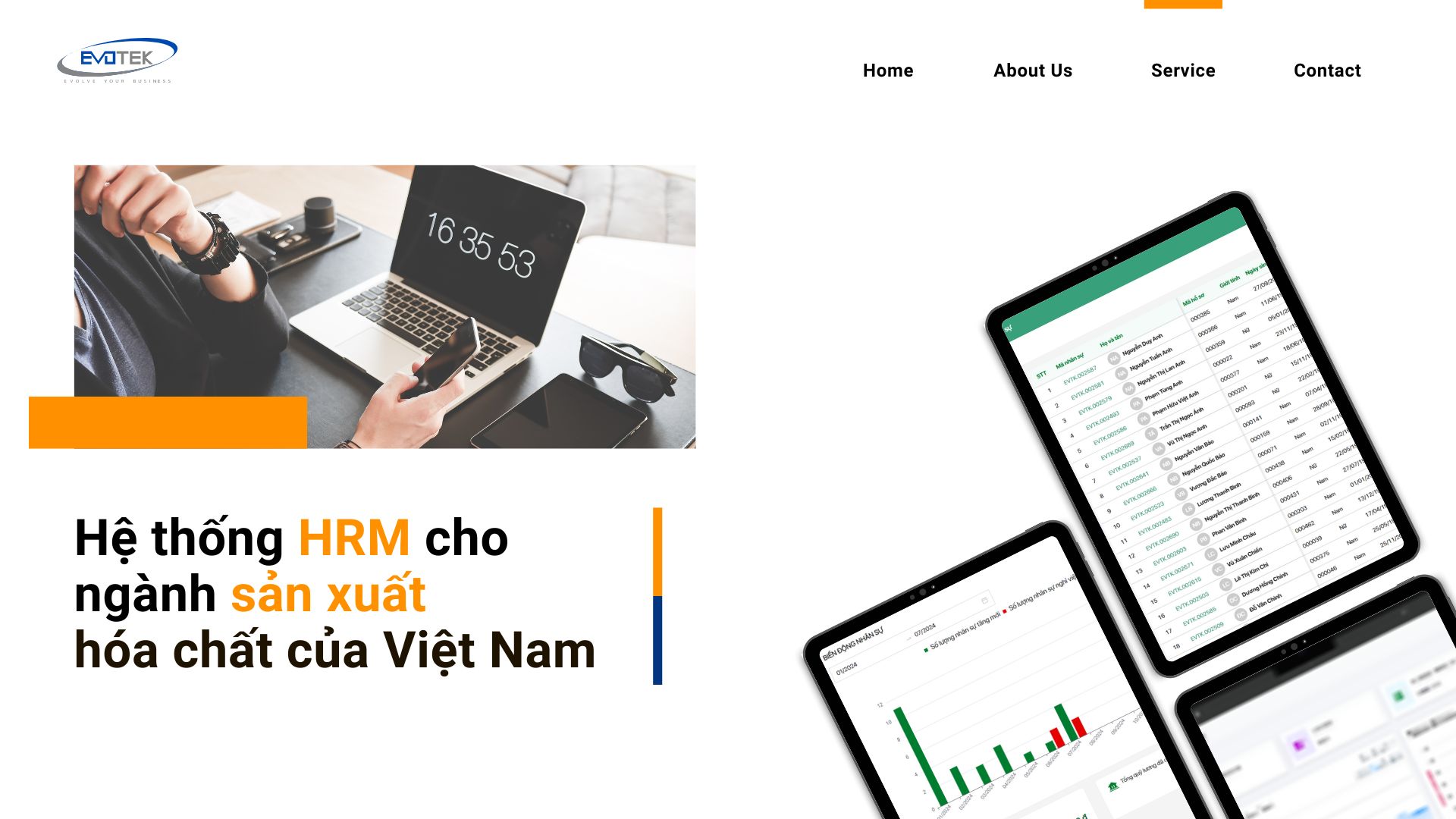Phát triển phần mềm là nhu cầu cấp thiết đối với các doanh nghiệp hiện đại trong mọi hoạt động và lĩnh vực công nghiệp khi toàn thế giới đang chuyển sang trực tuyến với tốc độ nhanh chóng. Một trong những giải pháp phổ biến để đáp ứng nhu cầu này là tìm kiếm nguồn nhân lực phát triển phần mềm ở nước ngoài.
Nhiều quốc gia như các nước ở châu Á và Đông Âu đã phát triển thị trường gia công phần mềm sôi động, cung cấp nguồn nhân lực lớn và đa dạng về chuyên môn. Việc tìm kiếm và thuê các nhà phát triển ở nước ngoài có thể là một giải pháp hiệu quả, đặc biệt khi khó tìm được chuyên gia phù hợp tại thị trường nội địa hoặc khi công ty muốn mở rộng thị trường bằng cách thành lập trung tâm R&D với đội ngũ phát triển ở nước ngoài.
Tuy nhiên, việc xây dựng một đội ngũ gắn kết và có năng lực ở nước ngoài không phải là một việc dễ dàng. Ngay cả việc hình thành một nhóm phát triển nội bộ cũng đã đầy những thách thức, từ các mâu thuẫn cá nhân đến những giai đoạn khó khăn trước khi nhóm có thể gắn kết chặt chẽ. Với nhóm ở nước ngoài, quá trình này lại càng phức tạp hơn do sự khác biệt về văn hóa, múi giờ và sự tham gia cá nhân, cũng như thiếu vắng tương tác trực tiếp.
Vì vậy, việc xây dựng và quản lý nhóm phát triển phần mềm ở nước ngoài đòi hỏi phải có một chiến lược và kế hoạch cụ thể. Bài viết này sẽ cung cấp cho bạn những hướng dẫn toàn diện về cách thức thực hiện hiệu quả quá trình này, từ việc đặt mục tiêu rõ ràng cho đến duy trì sự gắn kết và hiệu suất của nhóm.
1. Đặt mục tiêu rõ ràng cho nhóm
Sự mơ hồ về vai trò và mục tiêu không rõ ràng là điểm yếu lớn nhất đối với hiệu suất của nhóm, ngay cả với các nhóm nội bộ, nơi các thành viên có thể tiếp cận và giao tiếp trực tiếp với người quản lý. Khi hợp tác với một đơn vị gia công phần mềm bên ngoài, vấn đề này càng trở nên nghiêm trọng hơn.
Vì vậy, việc đặt ra các mục tiêu, cột mốc rõ ràng là vô cùng quan trọng. Doanh nghiệp cần xác định cụ thể những gì mà nhóm phát triển ở nước ngoài cần đạt được, sắp xếp các mốc thời gian và chỉ tiêu cụ thể. Tất cả các thành viên trong nhóm, bao gồm cả đơn vị gia công, phải hiểu rõ và đồng lòng hướng tới các mục tiêu này.
Một công cụ hữu ích để thiết lập mục tiêu hiệu quả là phương pháp SMART
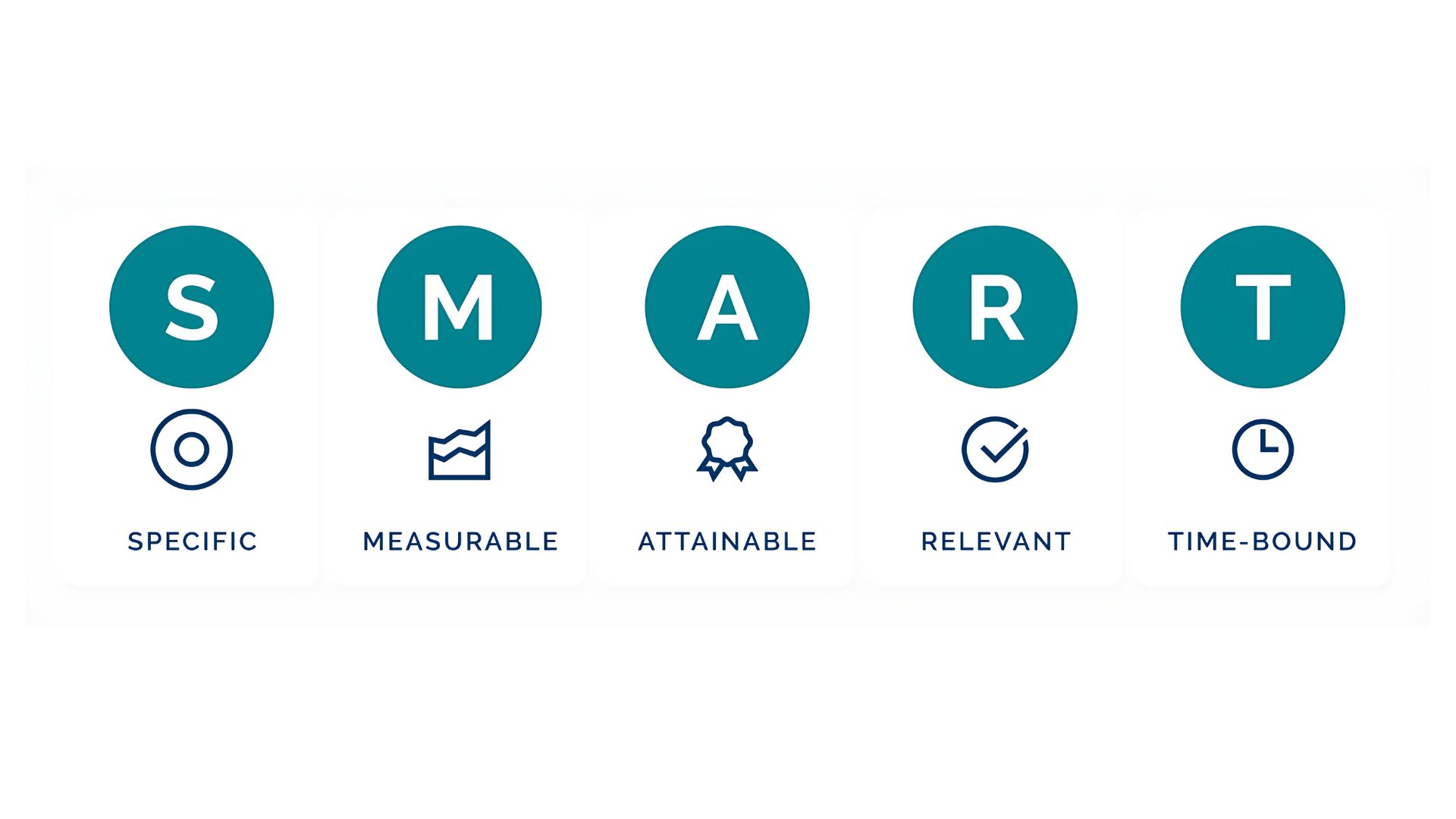
- Specific (Cụ thể): Mục tiêu được xác định rõ ràng, không mơ hồ.
- Measurable (Có thể đo lường): Có các chỉ số, tiêu chí cụ thể để đánh giá mức độ hoàn thành.
- Achievable (Có thể đạt được): Mục tiêu phải thực tế, trong khả năng của nhóm.
- Relevant (Phù hợp): Mục tiêu phải liên quan trực tiếp đến chiến lược và nhu cầu của doanh nghiệp.
- Time-bound (Có thời hạn): Xác định rõ các mốc thời gian để hoàn thành mục tiêu.
Việc sử dụng khung SMART giúp doanh nghiệp định hình rõ ràng các yêu cầu và mục tiêu với đơn vị gia công. Điều này không chỉ tăng cường hiệu suất của nhóm mà còn củng cố mối quan hệ hợp tác, đảm bảo các dự án được triển khai theo đúng kế hoạch.
Ngoài ra, doanh nghiệp cũng cần đảm bảo rằng nhóm phát triển ở nước ngoài hiểu rõ tầm nhìn, sứ mệnh và mục tiêu tổng thể của công ty. Họ cần chia sẻ chung một hướng đi để đảm bảo toàn bộ hoạt động kinh doanh đi đúng hướng.
2. Xác định phạm vi, tiến độ của dự án
Khi làm việc với một đơn vị gia công phần mềm, việc mô tả kết quả mong muốn một cách rõ ràng nhất càng trở nên quan trọng. Điều này giúp đảm bảo các sản phẩm, tính năng được xây dựng đúng với yêu cầu của khách hàng.
Việc thiết lập phạm vi dự án một cách cụ thể sẽ giúp doanh nghiệp lập kế hoạch phát triển phần mềm chính xác hơn cho các giai đoạn của dự án. Doanh nghiệp cần mô tả rõ ràng các sản phẩm, tính năng cần phát triển, kèm theo các yêu cầu cụ thể. Bên cạnh đó, doanh nghiệp cũng cần lên lịch trình các mốc giao hàng quan trọng, bao gồm cả các điểm kiểm tra, đánh giá giữa kỳ. Việc này giúp nhóm gia công nắm rõ tiến độ cần đạt được.
Ngoài ra, xác định rõ phạm vi dự án cũng sẽ hỗ trợ doanh nghiệp điều chỉnh các mục tiêu cho phù hợp với kỳ vọng. Dựa trên phạm vi đã được xác định, doanh nghiệp có thể thiết lập các mục tiêu cụ thể, có thể đo lường được (SMART) để đảm bảo các sản phẩm, tính năng được xây dựng đúng như yêu cầu của khách hàng.
Khi biết rõ những công việc, tính năng cần thực hiện, nhóm gia công có thể chủ động dự đoán và ứng phó với các rủi ro có thể xảy ra trong quá trình triển khai. Điều này là vô cùng quan trọng khi làm việc với một đơn vị bên ngoài, nơi sự giao tiếp và hợp tác không được trực tiếp như ở trong nội bộ.
3. Giao tiếp thường xuyên
Doanh nghiệp cần đầu tư xây dựng một chính sách giao tiếp toàn diện, bao gồm các quy tắc, lịch trình cụ thể và công cụ hỗ trợ hiệu quả. Việc giao tiếp thường xuyên không chỉ giúp giải quyết các vấn đề về vai trò, trách nhiệm và rào cản địa lý, mà còn thúc đẩy sự phối hợp chặt chẽ giữa các thành viên trong và ngoài nước, góp phần đảm bảo thành công của dự án.
Một điểm quan trọng cần nhấn mạnh là giao tiếp phù hợp cần trở thành một thành phần không thể thiếu trong văn hóa tổ chức của doanh nghiệp. Chỉ khi đạt được điều này, giao tiếp hiệu quả mới có thể trở thành linh hồn của sự hợp tác giữa doanh nghiệp và đơn vị gia công.
Để đạt được giao tiếp hiệu quả khi hợp tác với đơn vị gia công phần mềm ở nước ngoài, doanh nghiệp cần thực hiện các bước sau:
- Xác định cụ thể vai trò, trách nhiệm của lãnh đạo ở cả doanh nghiệp và đơn vị gia công.Tránh mọi sự mơ hồ hoặc xung đột về vấn đề lãnh đạo giữa hai bên.
- Định nghĩa rõ ràng các nhiệm vụ, kết quả cần đạt được của từng thành viên, bao gồm cả nhân viên nội bộ và nhân viên gia công. Đảm bảo mỗi người đều hiểu rõ vai trò và trách nhiệm của mình.
- Thiết lập một bộ quy tắc, giao thức giao tiếp duy nhất áp dụng cho tất cả các thành viên. Đảm bảo sự nhất quán và hiệu quả trong quá trình trao đổi thông tin.
- Lên lịch họp định kỳ giữa nhóm nội bộ và nhóm gia công để cập nhật tiến độ, giải quyết vấn đề.
- Tổ chức giao tiếp hiệu quả vượt qua rào cản múi giờ. Sử dụng các công cụ hỗ trợ như video call, chat nhóm để tổ chức các cuộc họp, trao đổi. Lên lịch họp phù hợp với múi giờ của hai bên.

4. Cung cấp thông tin, phản hồi ngay lập tức
Việc cung cấp phản hồi nhanh chóng giúp đảm bảo các yêu cầu, thông tin của nhóm gia công luôn được doanh nghiệp lắng nghe và xử lý kịp thời, tránh tình trạng những ý tưởng, câu hỏi của nhóm gia công bị bỏ sót hoặc phải chờ đợi quá lâu mới được giải đáp.
Đặc biệt trong bối cảnh hợp tác từ xa, việc thiếu thông tin phản hồi kịp thời có thể dẫn đến những hiểu lầm, rối ren và tắc nghẽn trong quá trình phát triển dự án. Nhóm gia công có thể sẽ không nắm rõ được yêu cầu của doanh nghiệp hoặc không biết phải thực hiện những công việc như thế nào. Điều này sẽ làm chậm tiến độ và ảnh hưởng đến chất lượng sản phẩm.
Ngược lại, khi doanh nghiệp chủ động cung cấp phản hồi ngay lập tức, nhóm gia công sẽ cảm thấy được lắng nghe và nắm rõ định hướng của dự án. Họ sẽ có thể giải quyết vấn đề một cách nhanh chóng, tránh lãng phí thời gian và công sức. Việc này cũng góp phần thúc đẩy sự tin tưởng, tương tác tích cực giữa hai bên.
Việc cung cấp thông tin, phản hồi ngay lập tức là một yếu tố then chốt để doanh nghiệp và nhóm gia công phần mềm có thể hợp tác hiệu quả. Điều này không chỉ giúp giải quyết kịp thời các vấn đề, tắc nghẽn mà còn thúc đẩy sự tương tác tích cực, nâng cao chất lượng sản phẩm và tiến độ dự án.
5. Tận dụng hiệu quả Time Zone Overlap
Khi hợp tác với một đơn vị gia công phần mềm ở nước ngoài, việc tổ chức các cuộc họp trong khung giờ Time Zone Overlap (khoảng thời gian làm việc trùng lặp giữa hai bên) là rất quan trọng để đảm bảo giao tiếp hiệu quả và thúc đẩy tiến độ dự án.
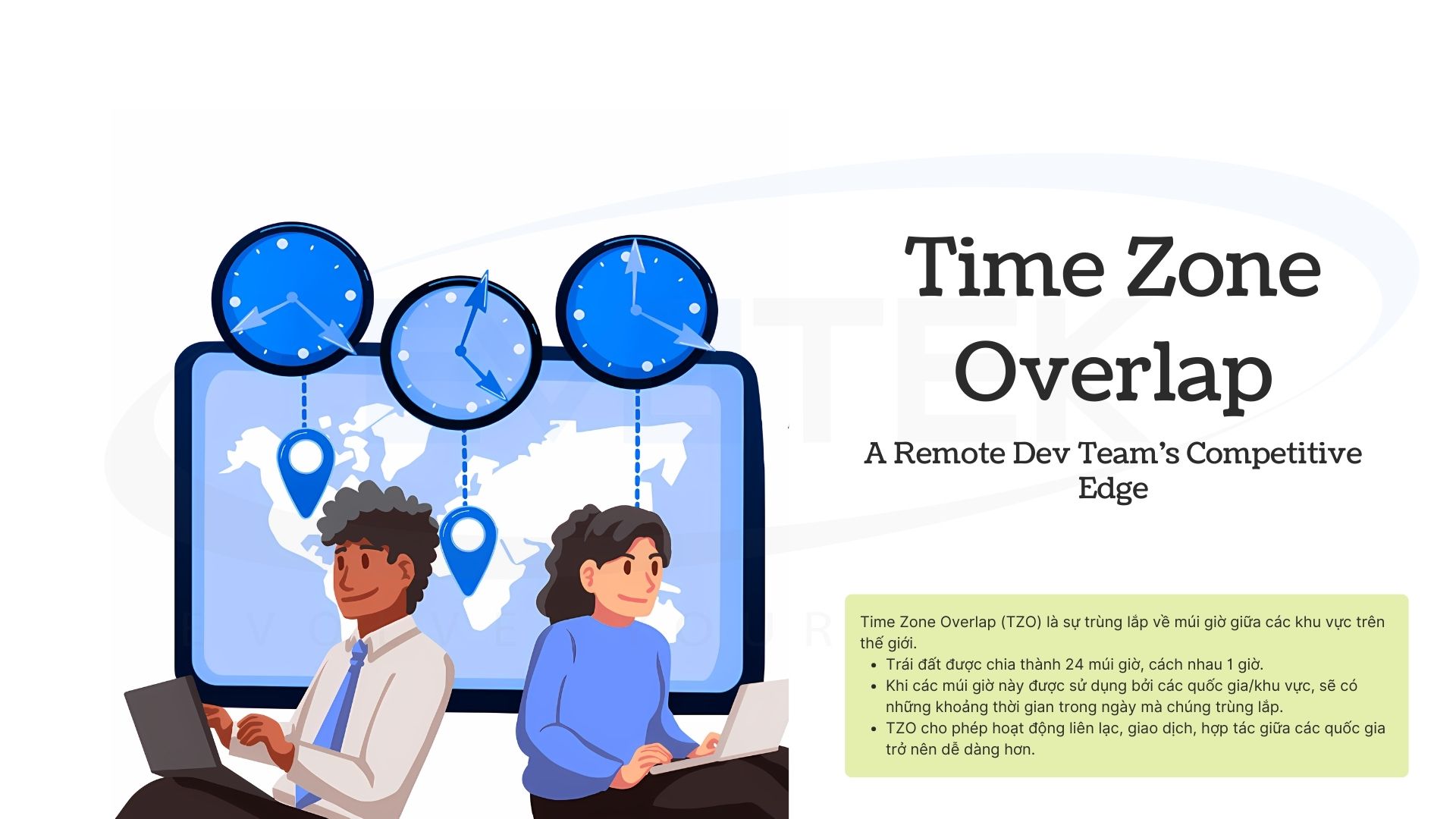
Thông thường, các quốc gia có múi giờ khác nhau sẽ có khoảng thời gian chênh lệch khoảng 2-3 giờ. Đây chính là “cửa sổ vàng” để doanh nghiệp và nhóm gia công có thể tập trung tổ chức các cuộc họp ảo, trao đổi thông tin cập nhật.
Trong các cuộc họp này, doanh nghiệp có thể:
- Nhận thông tin cập nhật về những công việc mà nhóm gia công đã thực hiện trong 8-9 giờ qua. Điều này giúp doanh nghiệp nắm bắt được tiến độ, kết quả đạt được của dự án.
- Đặt ra các ưu tiên và thiết lập nhiệm vụ cụ thể cho ngày làm việc tiếp theo. Thông qua đó, nhóm gia công sẽ hiểu rõ hơn về kế hoạch và định hướng công việc.
- Giải quyết kịp thời các vấn đề, câu hỏi hoặc ý tưởng mới từ phía nhóm gia công. Việc cung cấp phản hồi ngay lập tức sẽ giúp loại bỏ các quyết định bị trì hoãn.
Nhờ việc tập trung tổ chức các cuộc họp ảo trong khung giờ Time Zone Overlap, doanh nghiệp và nhóm gia công sẽ có thể duy trì sự tương tác, trao đổi thường xuyên. Điều này giúp xây dựng được một môi trường làm việc lành mạnh, hướng đến mục tiêu chung của dự án.
6. Cập nhật liên tục về tiến độ công việc
Việc cập nhật liên tục về tiến độ công việc là vô cùng quan trọng khi hợp tác với một nhóm phát triển phần mềm ở xa, chẳng hạn như cách xa nửa vòng trái đất. Để tận dụng tối đa điều này, doanh nghiệp nên áp dụng các mô hình quản lý dự án linh hoạt như Scrum, Kanban hay Agile…
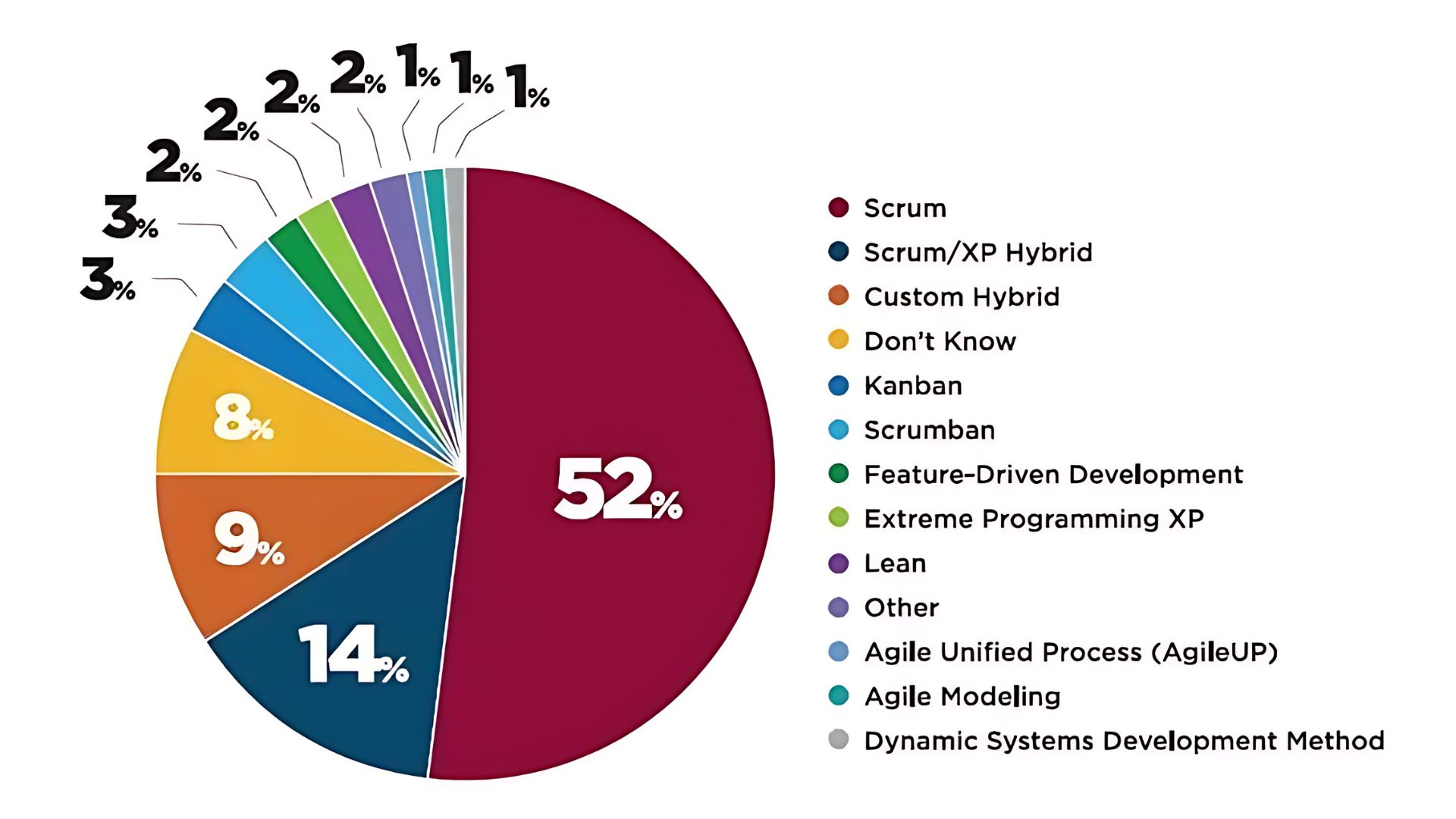
Các mô hình quản lý dự án này đều có những ưu điểm phù hợp khi làm việc với đơn vị gia công phần mềm từ xa:
Cập nhật liên tục
Các mô hình như Scrum yêu cầu các cuộc họp cập nhật tiến độ thường xuyên (ví dụ như mỗi ngày hoặc mỗi tuần), giúp doanh nghiệp và nhóm gia công luôn nắm bắt được tình hình tiến triển của dự án.
Phản hồi nhanh chóng
Các phương pháp quản lý linh hoạt khuyến khích việc liên tục lắng nghe và phản hồi ý kiến, yêu cầu từ phía khách hàng. Nhóm gia công có thể nhanh chóng điều chỉnh hướng đi và sản phẩm để đáp ứng nhu cầu thực tế.
Tự quản lý, linh hoạt
Nhiều đơn vị gia công hiện nay đã xây dựng các nhóm chuyên dụng, có khả năng tự quản lý và làm việc độc lập. Điều này giúp giảm thiểu nhu cầu giám sát và can thiệp quá mức từ phía doanh nghiệp.
Phát triển lặp đi lặp lại
Các mô hình Agile như Scrum khuyến khích phương pháp phát triển theo chu kỳ ngắn, với các bản giao hàng liên tục, giúp doanh nghiệp và nhóm gia công nhanh chóng nhận được phản hồi, cải tiến sản phẩm.
Nhờ việc áp dụng các mô hình quản lý dự án linh hoạt, doanh nghiệp có thể tối ưu hóa quá trình quản lý và phối hợp với nhóm gia công từ xa một cách hiệu quả hơn. Các cuộc họp cập nhật thường xuyên, khả năng tự quản lý và phản hồi nhanh chóng sẽ giúp loại bỏ các rào cản về khoảng cách địa lý.
Điều quan trọng là doanh nghiệp cần lựa chọn mô hình phù hợp, phù hợp với đặc thù của dự án và yêu cầu quản lý. Bên cạnh đó, việc hợp tác với các nhà cung cấp gia công chuyên nghiệp cũng sẽ giúp doanh nghiệp tận dụng tối đa các lợi ích của các phương pháp quản lý linh hoạt này.
7. Thanh toán theo từng mốc quan trọng của dự án
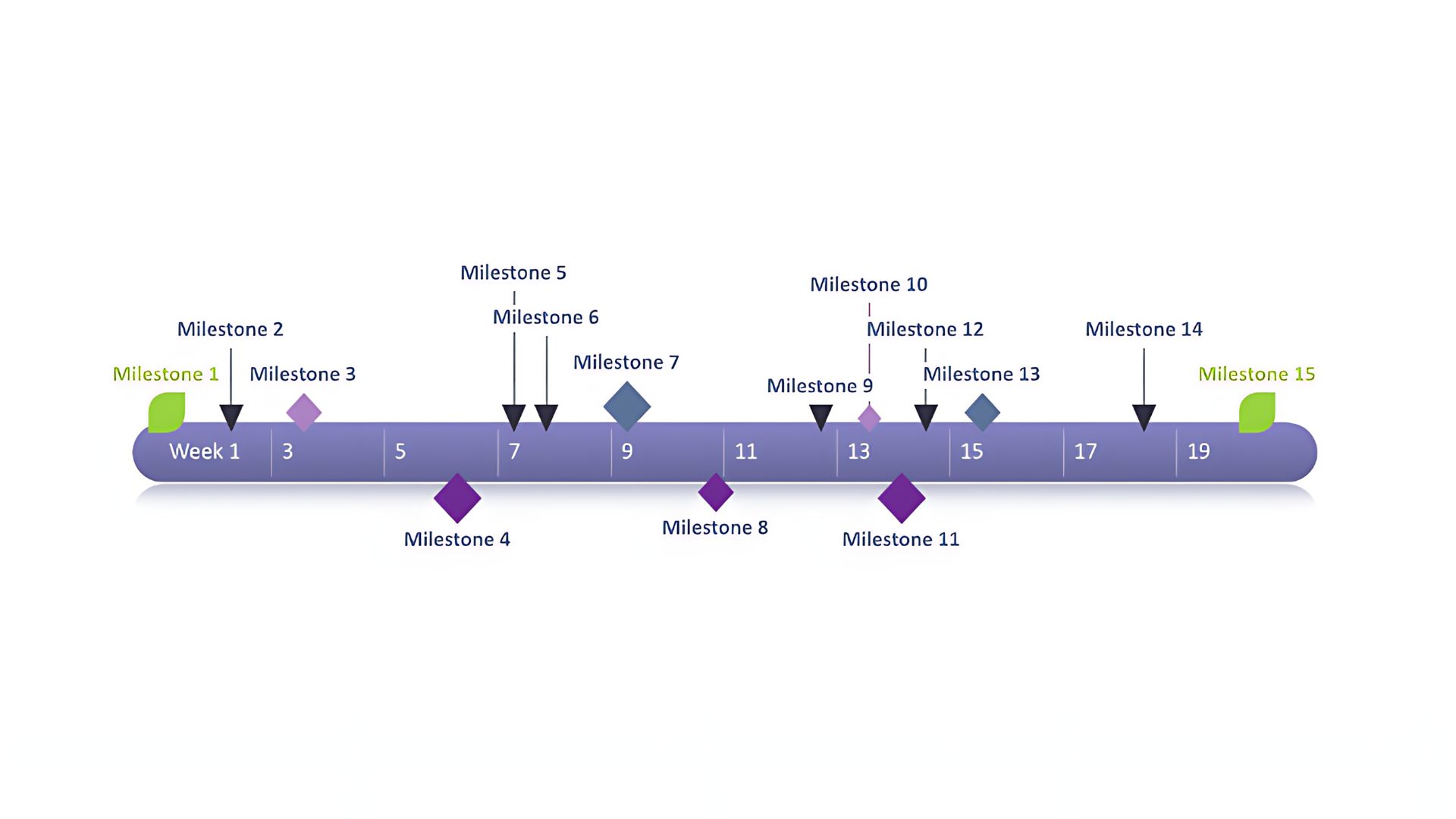
Việc liên kết các khoản thanh toán với các mốc quan trọng của dự án là một phương pháp rất hiệu quả để quản lý dự án và tránh bỏ sót bất kỳ tính năng nào. Dưới đây là một số lưu ý quan trọng khi thực hiện việc này:
Xác định các mốc quan trọng (milestones)
Xác định các giai đoạn chính trong dự án, chẳng hạn như hoàn thành các chức năng cơ bản, kiểm thử, triển khai sản phẩm. Đảm bảo rằng các mốc này đủ chi tiết và có thể đo lường được để đánh giá tiến độ.
Xây dựng tiêu chí chấp nhận (acceptance criteria)
Xác định rõ ràng các yêu cầu và tiêu chí để một mốc quan trọng được coi là hoàn thành. Tiêu chí này có thể bao gồm các chức năng, tính năng, chất lượng, hiệu suất, v.v. Việc xây dựng tiêu chí sẽ giúp đảm bảo rằng các bên liên quan đều hiểu rõ các yêu cầu và có cùng một định nghĩa về “hoàn thành”.
Liên kết thanh toán với các mốc quan trọng
Chia dự án thành các giai đoạn nhỏ hơn và liên kết khoản thanh toán với việc hoàn thành các mốc quan trọng. Điều này sẽ giúp tạo động lực cho đơn vị gia công phần mềm để hoàn thành các công việc theo đúng tiến độ. Ngoài ra, nó cũng giúp chủ dự án có thể kiểm soát tốt hơn tiến độ và ngăn ngừa rủi ro.
Quản lý và theo dõi tiến độ
Thường xuyên theo dõi và đánh giá tiến độ hoàn thành các mốc quan trọng. Nếu có bất kỳ sự chậm trễ hoặc vấn đề nào, cần phải nhanh chóng xác định nguyên nhân và đưa ra giải pháp kịp thời.
Bằng cách áp dụng phương pháp này, bạn có thể chia dự án thành các nhiệm vụ nhỏ hơn, dễ quản lý hơn, thay vì giao cho đơn vị gia công phần mềm một khối công việc lớn cùng một lúc. Điều này sẽ giúp tránh bỏ sót bất kỳ tính năng nào và đảm bảo dự án được hoàn thành đúng tiến độ và chất lượng.
Dịch vụ gia công phần mềm tại Việt Nam
Theo Statista , Việt Nam nằm trong top 7 quốc gia hàng đầu về dịch vụ kinh doanh Offshore trên toàn thế giới vào năm 2023. Mặc dù nền kinh tế Việt Nam bị ảnh hưởng bởi đại dịch COVID-19, Việt Nam vẫn nỗ lực trở thành một trong những điểm đến hấp dẫn nhất khi cung cấp dịch vụ gia công phần mềm chất lượng. Do đó, ngày càng nhiều doanh nghiệp nước ngoài có xu hướng lựa chọn các công ty tại Việt Nam làm nhà cung cấp gia công phần mềm.
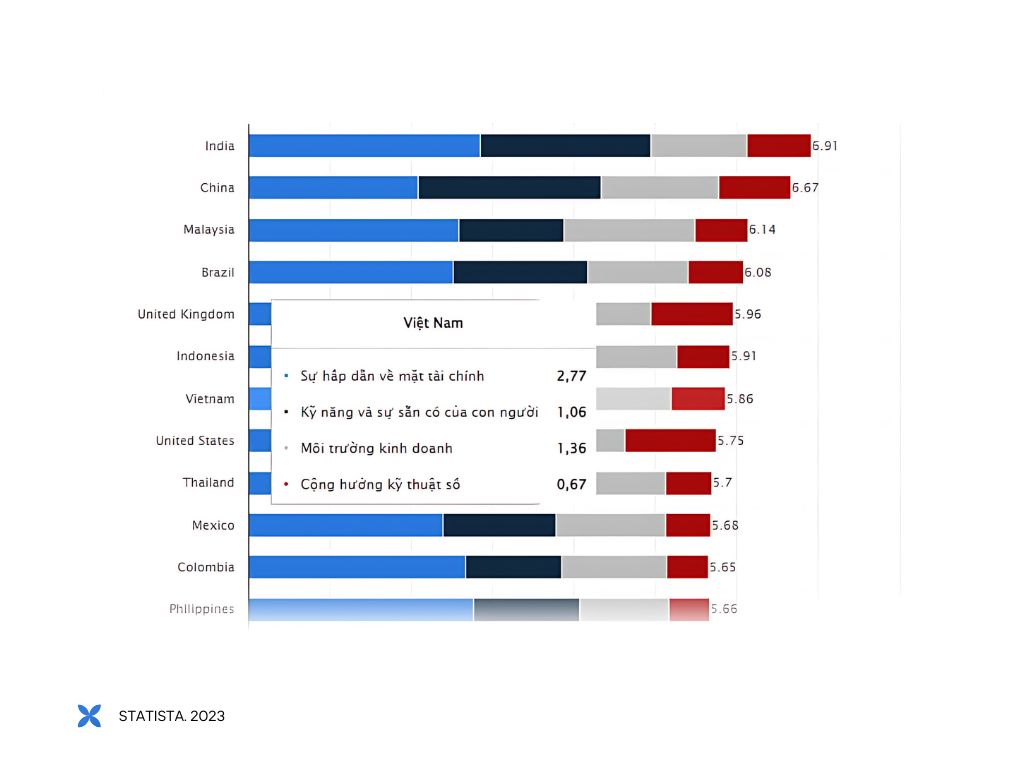
Dưới đây là một số lợi thế khi thuê đơn vị gia công phần mềm tại Việt Nam.
Tiết kiệm chi phí
Việt Nam nằm ở khu vực Châu Á – Thái Bình Dương, gần các thị trường lớn như Mỹ, Nhật Bản và Úc, giúp tiết kiệm thời gian và chi phí giao tiếp, vận chuyển.
Khoảng cách địa lý gần các quốc gia này cũng tạo điều kiện thuận lợi cho việc quản lý và theo dõi tiến độ dự án. Ngoài ra, chi phí lương nhân sự tại Việt Nam khá hợp lý, với mức trung bình thấp hơn nhiều so với các nước phát triển, nhưng vẫn đảm bảo chất lượng lao động không thua kém.
Sở hữu các nhà phát triển có trình độ cao
Việt Nam có một nguồn nhân lực IT phong phú, với nhiều kỹ sư, lập trình viên có trình độ và kinh nghiệm cao. Các trường đại học hàng đầu Việt Nam đào tạo ra hàng nghìn kỹ sư công nghệ thông tin mỗi năm, đáp ứng nhu cầu của các doanh nghiệp gia công phần mềm.
Nhờ vào chất lượng nguồn nhân lực này, các đơn vị gia công phần mềm tại Việt Nam có thể cung cấp dịch vụ chuyên nghiệp, đáp ứng tốt các yêu cầu của khách hàng.
Có chính sách hỗ trợ của Chính phủ
Chính phủ Việt Nam hiện nay đã có nhiều chính sách nhằm thu hút thêm đầu tư nước ngoài. Ngoài ra, Chính phủ đã phê duyệt Chương trình Chuyển đổi kỹ thuật số quốc gia, hướng tới các doanh nghiệp muốn áp dụng chuyển đổi kỹ thuật số để tăng cường sản xuất, hiệu quả kinh doanh và khả năng cạnh tranh.
Có rất nhiều công ty ở Việt Nam cung cấp dịch vụ gia công phần mềm. Evotek tự hào là một trong những công ty phát triển phần mềm tốt nhất tại Việt Nam cung cấp dịch vụ phát triển phần mềm chất lượng cao.
Với hơn 7 năm kinh nghiệm trong lĩnh vực công nghệ thông tin, Evotek tự hào là đối tác tin cậy giúp doanh nghiệp giải quyết các vấn đề và thúc đẩy sự phát triển đột phá thông qua công nghệ. Chúng tôi sở hữu một đội ngũ kỹ sư tài năng, thông thạo cả tiếng Anh và tiếng Nhật, Hàn, Nga…sẵn sàng đáp ứng mọi yêu cầu của khách hàng.
Evotek cam kết cung cấp cho các doanh nghiệp các dịch vụ phần mềm tuyệt vời nhất trong nhiều lĩnh vực, bao gồm:
- Phát triển phần mềm
- Phát triển ứng dụng di động
- Phát triển web
- Thiết kế UI/UX
- Quản lý quy trình kinh doanh
- Đảm bảo & kiểm tra chất lượng
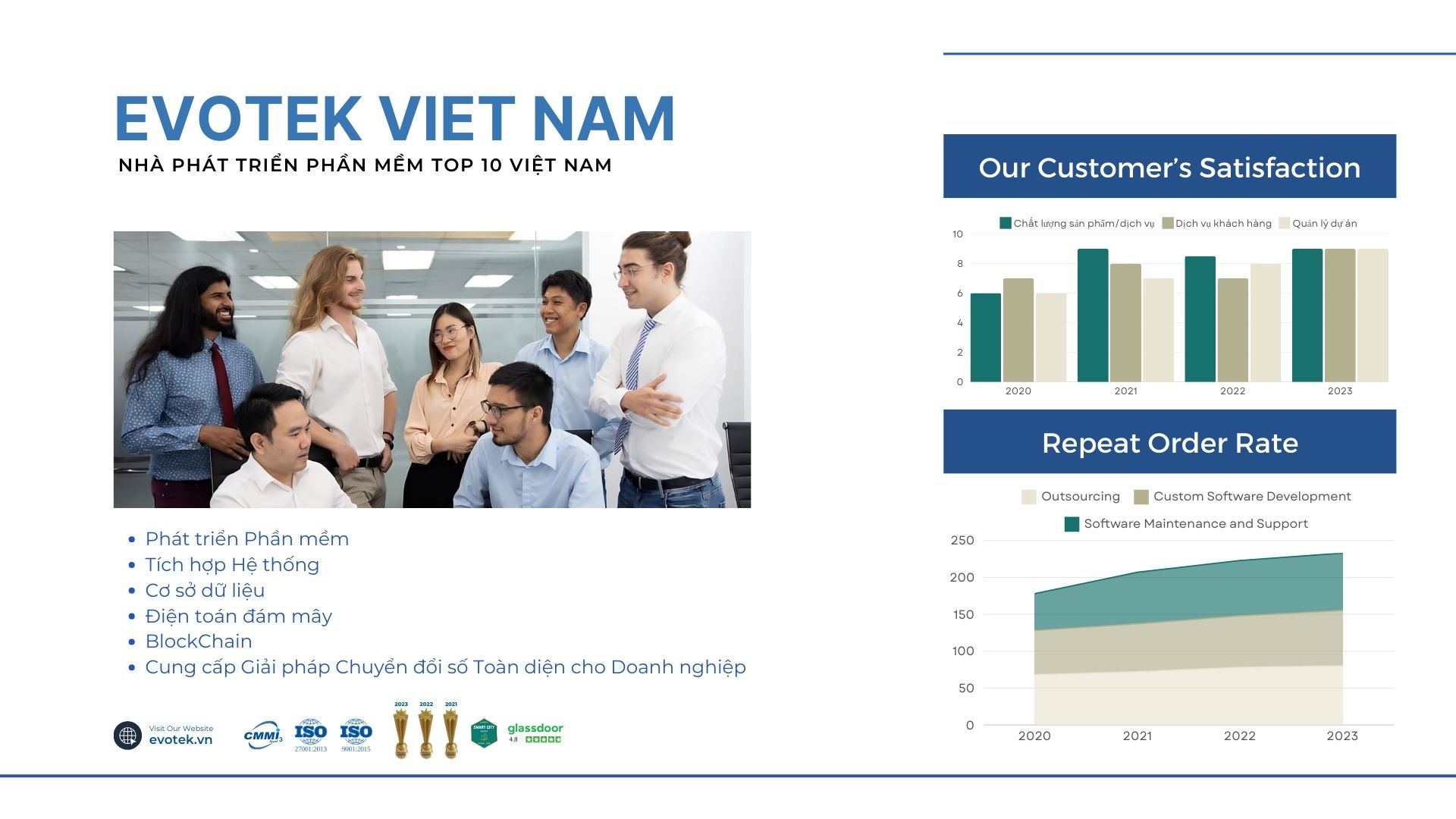
Top 12 câu hỏi thường gặp từ khách hàng của chúng tôi

 English
English 日本語
日本語 한국어
한국어 简体中文
简体中文